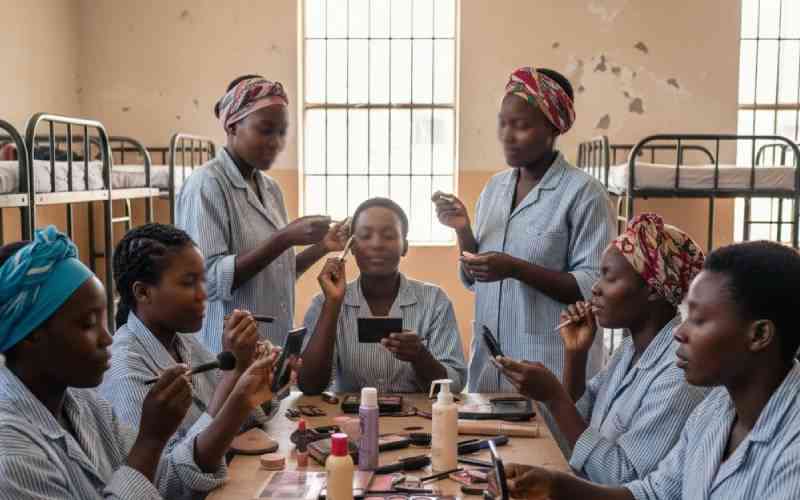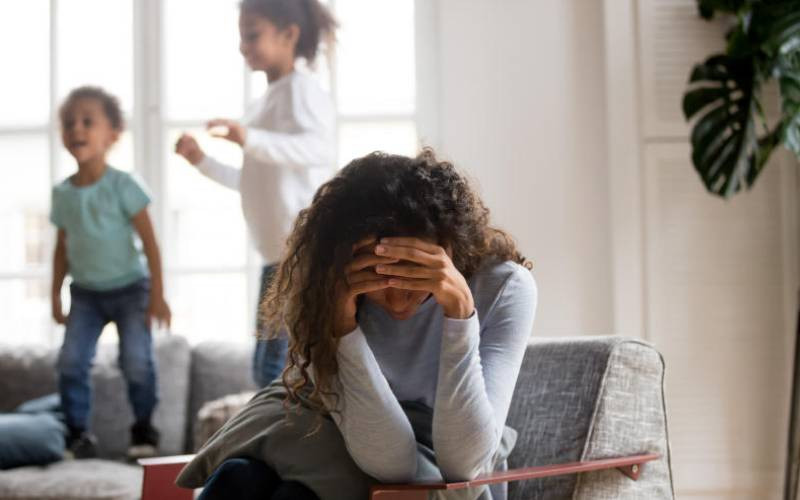
Four years ago, the family of former Assistant Minister Betty Tett hit the headlines for all the wrong reasons. Betty's son, David William Tett, had been sentenced to death for participating in a violent robbery against his own father, William Mulready Tett, and two domestic workers at the family's Karen home. David, it would emerge, was not the Tett's biological son but had been adopted early in his life following the death of his biological mother. That notwithstanding, Betty says, David had known no other mother but her and was therefore nothing short of a son.
"I am the one who raised him; he is my son even though biologically I am his aunty," she says. "And everything that has happened so far, any parent will tell you, has been a very painful experience." ?
Seeing the son, she raised 'deliberately' chose a dangerous path that has led to his incarceration is something that will always hurt her "because ultimately every parent wants the best from their child".
What is to blame for David's journey to the gallows? Could it have anything to do with liberal parenting styles, a reality of modern times?
Betty refuses to be her own judge but observes that indeed times have changed; that there is a stark difference between the age when she was a child and the age her son grew up in.
"When I was growing up you could not answer your parent back: you wouldn't think of it, let alone try it," she says. As the society progressed so did parenting, she says.
"We are living in a global village. Unlike when I grew up, today we have the Internet and social media. Also, our society continuously borrows from Western culture. What this has done is take away some of the control parents had over their children," Betty says.
- How can I help my kids build stronger social skills?
- Money talk at the dinner table: Teach children value
- How to prepare your toddler for a new sibling
- Teaching kids to choose the right company early
Keep Reading
According to Betty, apportioning blame to either parents or children is being quick to judge.
"It is not that simple. At times things are out of a parent's control and there is very little you can do. To change the tide, I think parents have to take back their control."
The May 2016 case of a 25-year-old nicknamed DJ by his parents, who stabbed his father countless times, shocked many in the country. Michael Amolo, a medical doctor by profession, succumbed to his injuries while undergoing treatment.
It was reported that he questioned his son's commitment at school after receiving information that he failed to sit for his pilot exams. But still, how a son rose up against a loving father, wielding a knife still baffles many.
If children are showing a lack of responsibility; if they are showing less respect for their parents; if they appear crooked in their ways, it is perhaps because [in conforming to modern trends] parents have relinquished the reins, opines Jardine Mwangeka, a mother of three.
She says: "Parents now listen more to their children – which is a good thing. But many have taken it far and allowed their children enormous amounts of freedom such that even grave mistakes go unpunished. In the process, these children develop a sense of entitlement. They fail to recognise that they have a responsibility to do the right thing." It is an all familiar cesspool that Harriet Ndege, a young mother, is determined to steer her eight-year-old daughter away from.
Harriet recognises that so much has evolved in the parenting arena. She grew up in an era when parents were "distant and unreachable".
"I am glad that this is changing. I have a daughter and I am keen on making sure that I don't err with her; that I maintain a friendship with her so that she can confide in me," says the mother of one. "But as much as I want that close friendship with my daughter she will grow up knowing that I am primarily her mother and she is the child. She will have to listen to my advice and take the direction I want her to take," Harriet insists.
According to Prof. Philomena Ndambuki, a child psychologist at Kenyatta University, the onus is on every parent to offer guidance to their child(ren).
"It is the responsibility of the parent to shape the values that a child grows up with. This is because children learn from what they see and what they hear. If a parent is irresponsible and shows no respect for other people you can't expect them to be well-behaved in general," she says.
Without a parent's guidance, children inherently tend towards the bad behaviour they are expected to be free from, Prof. Ndambuki says. Mrs Tett can't quite say when David's trajectory took a turn in the wrong direction. In previous interviews she has however spoke of being afraid of him; she and her husband were worried of their safety.
"We live in a world where young people can easily access drugs; where they are easily influenced by peers online; and one where children feel entitled and can make demands from parents. There are so many factors at play," she says.
According to Jardine, the society has changed, making it challenging for parents to achieve the best outcomes from their children.
She observes: "When I was growing up children were the responsibility of the society. If a child made a mistake they would be punished by anyone with authority. That has changed; parents are on their own."
That old-fashioned style of life is now a distant memory. In Kenyan towns and cities, there is no better evidence of the society's fragmentation than high walls and apartment blocks.
And hence, parents like Harriet, those who have put a priceless tag on their children's upbringing, have had to borrow from the old-fashioned parenting book: being a tough parent when it matters.
Harriet signs her daughter Abby up for boot camps every end of the school term. "At the camps they are expected to attend to their needs and be responsible to themselves."
So far, the young mother is happy with the results. At home, Abby tidies her bed every morning and is savvy with quick chores like preparing a cup of tea.
"As she grows she is learning to be responsible. My prayer is that she takes it upon herself when she wants something done or accomplished," she says.
Be authoritative; not authoritarian - Expert
In the old days, before the Internet was a thing in Kenya, and before corporal punishment was banned [not that it is related to parenting] children learnt by the cane.
"Our parents used to say that the ears of a child were on their buttocks," Jardine recalls.
And so, spanking was an everyday reality that every naughty child had to contend with. Did it help? According to Jardine, "yes it did."
She explains: "Many of us wouldn't be the people we are today if it wasn't for the strict parenting, albeit high-handed, that we went through."
This traditional style of parenting, comments Sheila Wachira, a counselor and relationships expert, is authoritarian. "Authoritarian because the power rested with the parent. Children towed the line as dictated by parents. There is no doubt that many parents who adhered to authoritarianism meant well for their children. However, as to whether it was the best method of parenting is a different question," says Sheila.
Sheila advocates for the authoritative style of parenting; arguing that allowing too much space for children to decide their own fate will most likely lead children astray.
"With authoritative parenting, the parent remains fully in charge, but allows the child some space to explain themselves. Also, when punishment needs to be meted out the parent explains to the child why they ought to be punished," she says.
Authoritarianism can cause children to grow up timid and lacking in confidence.
Sheila is herself a mother. Her 13-year-old firstborn has been subject to both the authoritarian and authoritative styles of parenting. "Before acquiring the skills and the knowledge I have today I naturally applied the same skills my parents used on me. But then I realised that I was not helping my son achieve the kind of discipline I wished for him," she says.
The benefit of bringing up a child in the authoritative style of parenting, Sheila says, is "solidifying the belief that wrong behaviour does not benefit and good behaviour is cherished."
The problem with the authoritarian style, she adds, is that sometimes children understand very little about the mistakes they are being punished for. "It is fine to punish a child (and there are many ways to do that: not just spanking) but it would be waste of time and energy if they don't know the mistake they had made."
 The Standard Group Plc is a multi-media organization with investments in media
platforms spanning newspaper print
operations, television, radio broadcasting, digital and online services. The
Standard Group is recognized as a
leading multi-media house in Kenya with a key influence in matters of national
and international interest.
The Standard Group Plc is a multi-media organization with investments in media
platforms spanning newspaper print
operations, television, radio broadcasting, digital and online services. The
Standard Group is recognized as a
leading multi-media house in Kenya with a key influence in matters of national
and international interest.










